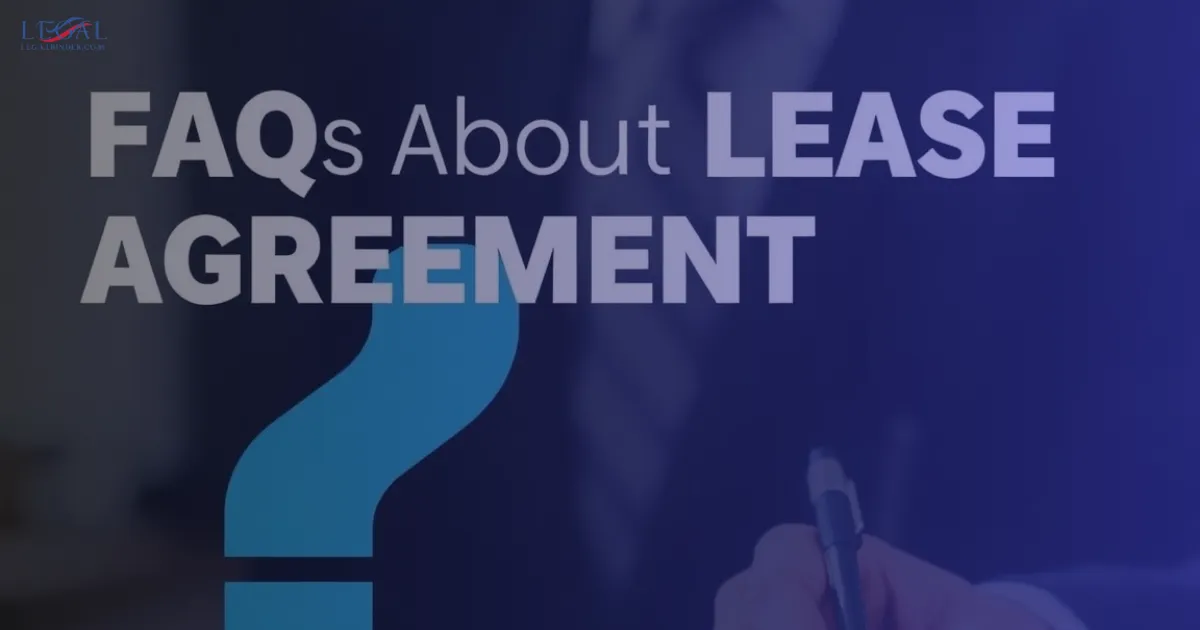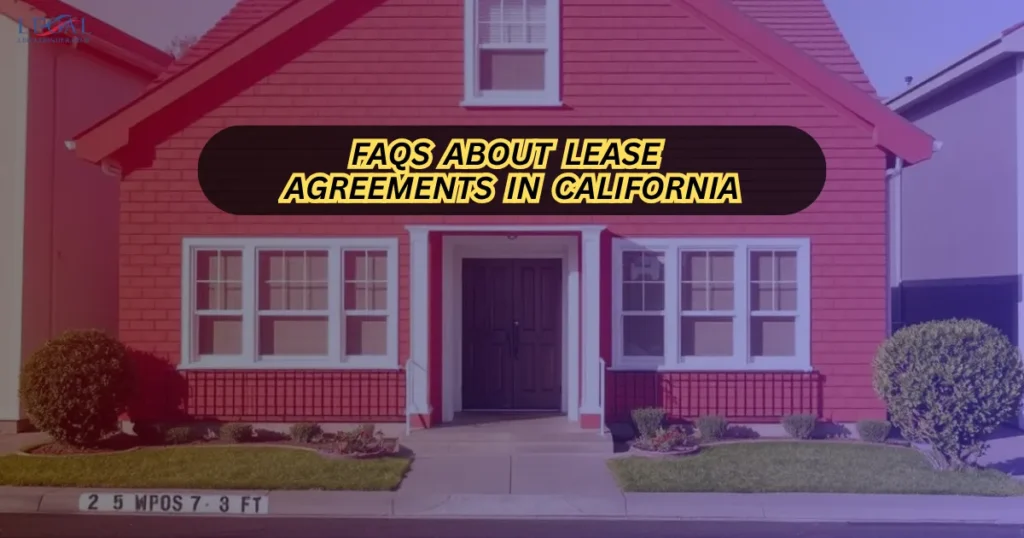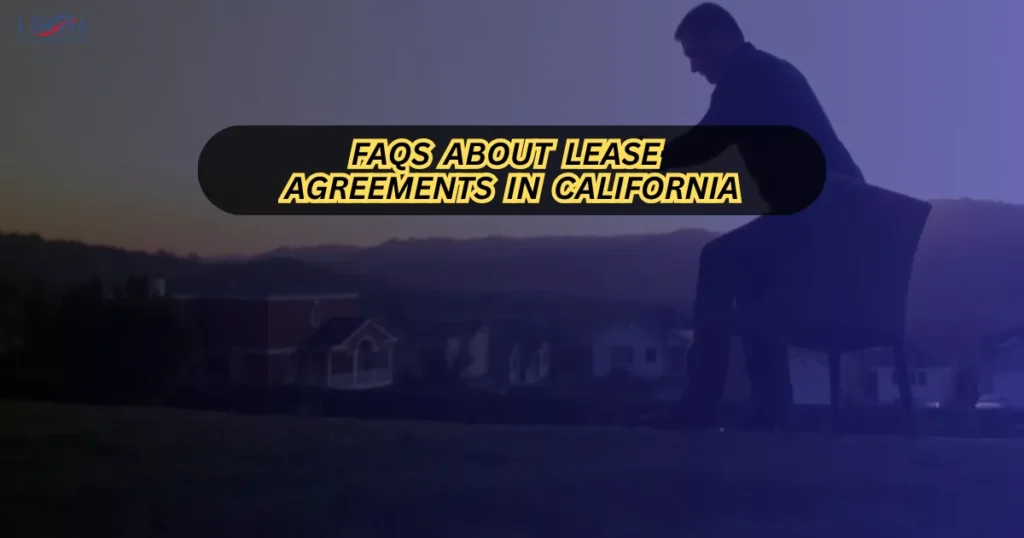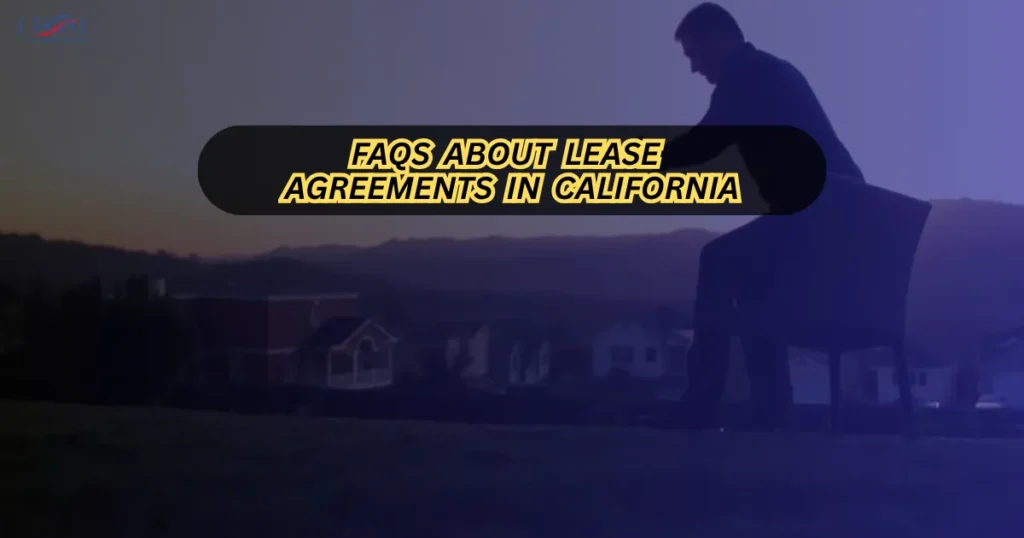Physical Address
304 North Cardinal St.
Dorchester Center, MA 02124
Physical Address
304 North Cardinal St.
Dorchester Center, MA 02124

Lease agreements in California shape the heart of every landlord-tenant relationship. Whether you’re looking for your first apartment, leasing a commercial space for your business, or managing multiple properties, your lease is more than just paperwork—it’s a legally binding agreement that can protect you or penalize you, depending on how well it’s written and understood.

Think about the last time you moved into a new place. Excitement filled your mind as you pictured arranging furniture and making it your own—only to be handed a dense, multi-page document filled with clauses you barely skimmed. Weeks or months later, a repair issue, a rent dispute, or a question about pets suddenly had you combing through that same document. In California, where landlord-tenant laws are among the most detailed in the U.S., knowing the answers to common lease agreement questions can mean the difference between a smooth rental experience and a stressful legal battle.
This guide answers the most frequently asked questions about California lease agreements—covering everything from required disclosures to termination rules—so you can sign your next agreement with confidence.
Need more legal insights? Visit our homepage for expert resources on California rental laws and property agreements.
A lease agreement is a legal contract between a landlord and tenant that outlines the terms and conditions of renting property. In California, this agreement must comply with the state’s California Civil Code and any applicable local ordinances. Violating these requirements can make parts—or all—of the lease unenforceable.
Key authoritative resources:
California leases should include rent amount, payment terms, security deposit, lease duration, repair responsibilities, and required legal disclosures (e.g., lead-based paint, mold).
Verbal leases shorter than one year can be valid, but written agreements are strongly recommended to avoid disputes.
Two months’ rent maximum for unfurnished units; three months for furnished units.
No. All deposits must be potentially refundable under California law.
No. Increases must comply with statewide rent caps under AB 1482 and applicable local rent control laws, and proper notice must be given.
Landlords must maintain habitability; tenants are responsible for repairs caused by their negligence.
Yes, landlords can restrict or ban pets, but service and emotional support animals are protected under disability laws.
Only if your lease permits it. Many agreements require landlord consent.

No. At least 24 hours’ written notice is required, except in emergencies.
Valid reasons include military service (SCRA), uninhabitable conditions, or being a victim of domestic violence, among others.
It can convert to month-to-month if both parties agree, or end completely with proper notice.
Yes, if clearly disclosed. Tenants must be reminded within a specific timeframe in some cases.
Yes, unless your lease specifies another method. Landlords can require online payment if reasonable accommodations are made for those without access.
In many cases, no—especially for tenants covered by “just cause” protections under California law.
21 calendar days after you vacate, with an itemized statement for any deductions.
Yes, if outlined in the lease. Tenants should understand utility billing before signing.
Clauses that conflict with California law, such as waiving habitability or prohibiting lawful rights, are invalid.
If unsure about a lease’s legality or facing a dispute, consult a California landlord-tenant attorney.

Lease agreements in California can be your strongest protection or your biggest liability. By understanding these FAQs, you’re arming yourself with knowledge to navigate the rental process confidently. Whether you’re the one handing over the keys or receiving them, a well-crafted lease is your foundation for a positive rental experience.
Start by reviewing your current lease today. Address unclear clauses, confirm compliance with California law, and don’t hesitate to negotiate for terms that work for you.
For step-by-step guides and legal resources, visit our home page.